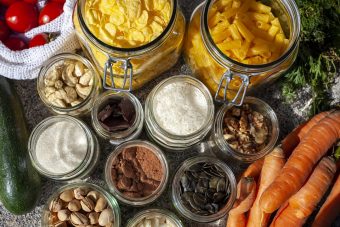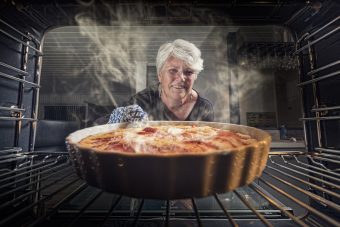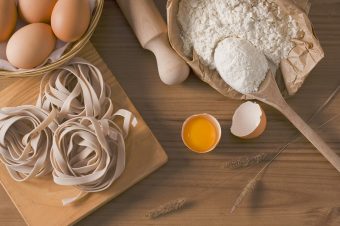
In 2016, France prescribed that it is compulsory for all supermarkets in its territory to donate excess food on a daily basis. Otherwise, they face fines of up to €75,000. Thus, solidarity among the French is encouraged by the letter of the law. On the other hand, due to the absence of the Law on Donations in Serbia, donor companies have to pay VAT of 25 per cent, revealed Gordana Jovanovic, manager of Donorum.
Together with Ilija Veselinovic, Zvezdana Mutapovic, Filip Krivokapic, Tomas Momcilovic and Stefan Zivic, Gordana launched Donorum intending to offer the response to the accumulation of food waste in Serbia. This non-profit, non-governmental association originated from the desire of youth to help socially disadvantaged people. Its name comes from the Latin word meaning gift – donum. Guided by the motto that food surpluses are not a problem solely of an ecological and agro-economic nature, but that they also affect people in our community, donors Gordan, Ilija, Zvezdana, Filip, Tomas and Stefan have designed the Public Kitchen Infrastructure application.
In focus:
According to the United Nations, more than 250,000 tonnes of food is thrown away annually by Serbian households, which means that each country resident sends around €200 to the landfill. A not too nice and convenient place to invest money, we will agree! “Other countries view food waste as a basic resource, while our companies and individuals continue to fail to realize its potential due to regulations and irresponsibility,” said our interlocutor, who is by profession a geographer and an environmental engineer.

One of those countries Gordana is talking about is Ireland, which is where the Food Cloud app comes from. Food Cloud was an inspiration for her and her colleagues to make Public Kitchen Infrastructure. It brings together more than 4,000 charities with the largest retail chains out there, such as TESCO and ALDI. “We believe that a similar project is feasible for us, as we have proven by creating this app,” she said.
We also received firsthand information about how Public Kitchen Infrastructure functions. “Donors and humanitarian organisations should register to our website donorum.org. Then we do the checking. Registered users then receive their profiles. Donors can post donations to our platform at any time after the process is completed and they become visible to all affiliated charities,” Gordana, one of the original creators of Donorum, revealed to us. She adds that donors have the option to indicate the quantities of food that they have on disposal and the packaging those are in, as well as the option to check the donation as “an emergency” if necessary.

The application is free of charge, and the data is updated in real-time and is available to the public. It started working at the end of October 2019, when company Imlek donated milk for the rehabilitation centre Duga from Novi Sad and the charity organisation Carolija from Belgrade.
Gordan, Ilija, Zvezdana, Filip, Tomas and Stefan united their knowledge and skills in designing the website and promoting their association and application. The available resources were put into service by a noble cause. However, it requires collective action. Ecology and philanthropy seek the involvement of the state, industry and legislators, and Donorum delivered them a great meeting place.
Can We Use the App?
Currently, individuals cannot make their contribution to the work of Donorum’s public kitchen. Still, the team hopes to receive project funding soon to enable them to create an application for Android and Apple devices, Gordana explained.
By then, the association is inviting citizens to follow them on social networks, where they share tips for preventing food waste at home.
Prepared by: Jelena Kozbasic
This article was published in the new issue of the Energy portal Magazine NATURAL RESOURCES, march – may, 2020



